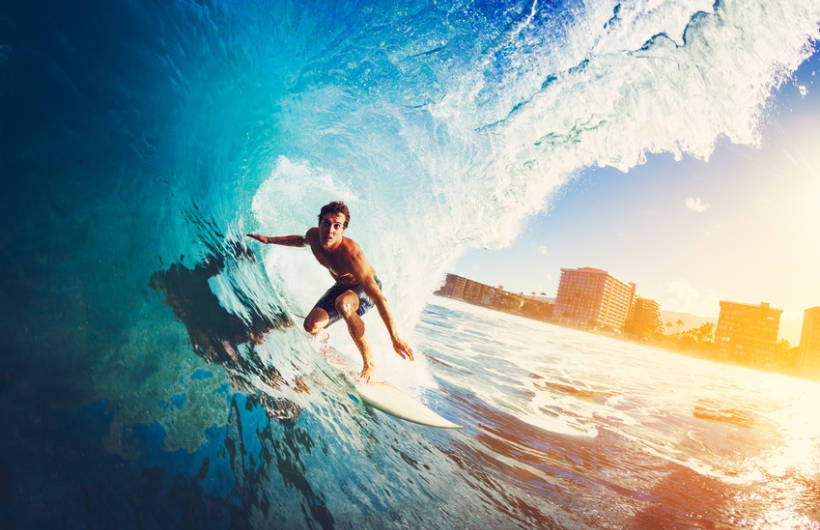What is a flow state?
In the worlds of art, martial arts, business and sports, a flow state is considered to be a nearly unreachable pinnacle in which a person is able to intensely focus on a specific goal or task without distraction while acting instinctively. This term has been popularized since it was first described and has been used across industries by business executives, motivational speakers and sports professionals.
In the context of sports, a flow state may refer to a state in which you are able to get past negative self-talk and deliver a perfect tennis serve. A writer might write a chapter in a book that has characters that leap off of the page in a day. At work, achieving a flow state might mean that you are able to conquer your daily to-do list quickly and without being distracted by anything.
Since different activities require the activation of different areas of the brain, a flow state may result when you are able to shut down certain areas while increasing your brain activity in the region that is important for what you are doing. Neural imaging shows that people who are in flow states have greatly reduced activity levels in their frontal cortexes. This is the part of your brain that gives you your sense of self and from which your self-talk originates. If you are able to effectively turn it off, you can then focus on the activity in which you are engaging.
How can you benefit from achieving a flow state?
A flow state can benefit you in multiple ways. When you are in a flow state, you are likely so engaged in your activity that you don't notice how you feel until later. When your activity is finished, you will feel happier overall. According to Csikszentmihalyi, the type of happiness that people feel from flow states is more under their control than happiness that people experience from relationships. This is because the happiness you feel from a flow state doesn't depend on others or on external factors.
A study demonstrated that people tend to feel stronger, more active, more cheerful, more creative and satisfied when they are in flow states. After achieving a flow state, self-esteem increases. Teenagers who are in flow states are likelier to be optimistic and to have better relationships with their friends.
Csikszentmihalyi says that flow gives people enjoyment as opposed to pleasure. Enjoyment is a state that requires energy for you to feel and is not derived out of a sense of contentment. Flow states also help people to have better control over their emotions. This can aid you in building better coping skills and to have lower levels of stress. Finally, the role of flow in productivity and performance has been thoroughly demonstrated. In one study, executives reported enjoying an increase in productivity of five times when they were in flow.
When you are in a flow state, your brain shows higher levels of relaxation. Your brain waves in a flow state shift to a greater percentage of alpha waves, which are associated with relaxation, and theta waves, which are associated with meditation. Because flow states cause your brain to release dopamine, your ability to learn is enhanced. People who are in flow more often spend more time working when they are at their jobs instead of gossiping and doing other things to avoid work.
How do you achieve a flow state?
Flow offers many benefits, but it is elusive. It is possible to achieve a flow state through practice and discipline. If you are a martial artist, you can achieve flow by practicing your katas over and over again until the movements become effortless. Flow is akin to mindfulness, which is a state of being during which you are able to devote your full attention to the immediate task that you are performing. Mindfulness is a type of meditation. The regular practice of meditation can help you to learn how to enter into a flow state. Your meditation practice can be helped by using Brainwave Entrainment Music because it stimulates your theta brainwaves, assisting you with entering into a flow state.
After you meditate, take time to be aware of your breathing. Think only about the sensation of your breaths as you exhale and inhale. Then, focus your complete attention on the present. Do not think about the past or worry about the future. You should then turn your attention to the activity, and do everything deliberately. Make your activity a part of your meditative practice with an intensive focus on it. While you are completing your activity, remain focused on it and alert. Don't allow your mind to wander and continue to be engaged in the present moment at all times.
Achieving a flow state takes practice and work. When you learn how to do it, you will be able to enter flow more frequently. By beginning a mindfulness meditation practice that is aided by Brainwave Entrainment Music, you can learn to focus on your activity without distraction. You will then be able to reap the benefits that flow has to offer, including greater productivity, performance, creativity, happiness and more.
Feel free to check out the special music I created to help you achieving the flow state more easily.

